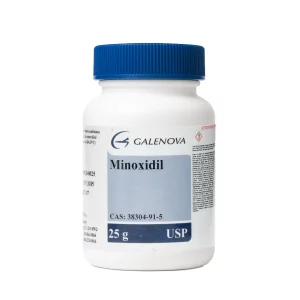Your cart is empty.
Your cart is empty.
Metformin, a commonly prescribed diabetes medication, has garnered attention for its potential benefits on brain health. Researchers are investigating metformin’s effects on cognition, memory, and neurodegeneration. Notably, metformin’s benefits for non-diabetics are another area of interest for many researchers. Studies suggest metformin may have neuroprotective properties, promoting healthy brain aging and potentially reducing the risk of neurodegenerative diseases.
Metformin’s potential benefits on longevity and brain health have researchers exploring its effects on healthy individuals. Scientists may uncover new avenues for promoting long-term brain health by understanding how metformin impacts cognitive function and neurodegeneration. If proven effective, metformin could become a valuable tool for supporting brain function and potentially increasing lifespan. To get metformin, consult with a healthcare professional to discuss potential benefits and determine if it’s right for you. Currently, metformin and longevity are areas of ongoing research, offering promising possibilities for overall health and well-being.
Metformin has been a trusted treatment for type 2 diabetes for decades. It effectively regulates blood sugar levels by enhancing insulin sensitivity. Recent research explores its potential benefits beyond diabetes, particularly in aging and neuroprotection. Metformin’s impact on inflammation, blood flow, and metabolism has sparked interest in its therapeutic possibilities for brain health. By improving insulin’s effectiveness, metformin may promote cognitive function and reduce neurodegenerative disease risk. Metformin’s potential continues to grow as research reveals its benefits, opening up fresh opportunities for supporting healthy aging and optimal brain function.

Metformin’s cognitive benefits are attributed to several key mechanisms:
These mechanisms collectively influence memory, focus, and cognitive aging by:
Research suggests metformin may improve cognitive function and slow aging. Key findings include:
Animal Models:
Human Studies:
Limitations and Gaps:
Metformin shows potential in maintaining cognitive performance in specific populations, including:
Preventive role and ongoing research:
These studies aim to demonstrate metformin’s potential benefits and provide insight into its therapeutic applications for cognitive health.
Metformin is being researched for its potential benefits in supporting brain health. Typical dosages studied in cognitive health research range from 500mg to 2000mg per day. However, it’s crucial to consult a healthcare provider before using metformin off-label for brain health. They can help determine the best course of treatment and monitor potential side effects.
Integrating metformin into a broader brain health routine
To support brain health, metformin can be combined with other lifestyle interventions. A balanced diet rich in fruits, vegetables, and omega-3 fatty acids provides essential nutrients. Regular exercise, such as walking or aerobic activity, promotes cognitive function. Adequate sleep, aiming for 7-9 hours per night, is also vital.

A long-term view: Metformin as part of a preventive wellness strategy
Metformin may be one component of a comprehensive approach to preventive wellness. By combining metformin with a healthy lifestyle and regular check-ups, individuals can support their overall brain health. A healthcare provider can help determine the best approach and create a personalized plan. This integrated strategy may help promote cognitive resilience and overall well-being.
Metformin may support memory and reduce cognitive decline in insulin-resistant individuals, according to some studies. But more research is needed to confirm its effectiveness in preventing cognitive decline.
Metformin’s potential benefits for brain health in non-diabetics are being researched. However, its use should be discussed with a healthcare provider to weigh potential benefits and risks and determine the best approach.
Metformin may not directly improve memory or focus. Instead, its benefits may come from improved blood flow, reduced inflammation, and better metabolic health. These effects may indirectly support cognitive function.
Metformin’s risks for cognitive support are generally low. However, potential issues include nutrient absorption problems. Medical guidance is crucial to weigh benefits and risks and ensure safe use.
Cognitive benefits from metformin, if they occur, may take time. Effects can emerge gradually over several months of consistent use. Patience and medical monitoring are essential to assess potential benefits.
References
https://pmc.ncbi.nlm.nih.gov/articles/PMC4214027
https://doi.org/10.1210/endrev/bnad029


Acarbose blocks carbohydrate breakdown in the small intestine, preventing rapid glucose absorption spikes.

Dasatinib eliminates senescent cells through selective apoptosis, clearing age-damaged tissues from the body.

Metformin inhibits hepatic glucose production while enhancing insulin sensitivity, offering cost-effective Type 2 diabetes management.

Minoxidil dilates scalp blood vessels, increasing nutrient delivery to hair follicles while extending the anagen growth phase duration.
Unlock savings on bundles and elevate your online experience today!